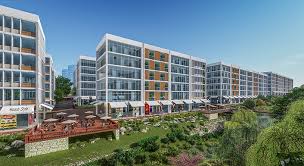
ERP System Insights: UAE Trends & Examples
Enterprise Resource Planning (ERP) systems have become essential for businesses seeking streamlined operations, data-driven decision-making, and sustainable growth. In recent years, the ERP system landscape in the UAE has experienced significant transformation due to digitalization and innovation across industries like logistics, retail, manufacturing, education, and healthcare.
This blog will explore what ERP systems are, how they function, and how the ERP system in the UAE is transforming local enterprises. We’ll also highlight ERP system examples that reflect global and regional best practices.
Let’s dive into the world of ERP.
What is an ERP System?
An ERP system (Enterprise Resource Planning) is a software platform that integrates various business functions into a unified system. It allows organizations to manage processes such as:
- Inventory and supply chain
- Accounting and finance
- Human resources
- Customer relationship management (CRM)
- Procurement
- Manufacturing and logistics
ERP systems facilitate real-time data sharing across departments, enhancing efficiency, reducing manual errors, and enabling data-driven decisions.
Key Features of ERP Systems
- Centralized Database: All business data is stored in one platform.
- Modular Design: Organizations can choose modules relevant to their operations.
- Automation: Reduces repetitive tasks through workflows.
- Analytics and Reporting: Offers dashboards and reports for key performance indicators (KPIs).
- Customization: Can be tailored based on the size and type of business.
The Rise of ERP Systems in UAE
Why ERP Systems are Crucial in the UAE
The UAE, with its rapidly growing economy, diversified sectors, and commitment to smart government initiatives, has embraced ERP systems as part of its digital transformation. Sectors like logistics, real estate, healthcare, and government are increasingly relying on ERP to streamline operations, ensure compliance, and remain competitive.
Government Support and Vision 2030
Initiatives like UAE Vision 2030 have created a fertile ground for ERP adoption. With an emphasis on digital governance and business innovation, both SMEs and large enterprises are investing in ERP for:
- Better financial transparency
- Enhanced citizen and customer services
- Seamless e-governance platforms
Benefits of Implementing ERP Systems in UAE
- Localized Compliance: UAE VAT, taxation, and labor laws can be integrated into ERP systems.
- Multi-language Support: Many ERP systems in the UAE support Arabic and English interfaces.
- Cloud Infrastructure: With high internet penetration and cloud readiness, SaaS-based ERP models thrive.
- Business Scalability: UAE startups and SMEs prefer ERP for quick scalability.
- Security: ERP vendors offer end-to-end encryption and cloud security that meets UAE’s digital safety standards.
ERP System in UAE: Market Landscape
Key Industries Leveraging ERP in UAE
- Healthcare: Patient management, billing, inventory.
- Retail & E-commerce: Stock control, POS integration, logistics.
- Construction: Project management, financial planning, compliance.
- Education: Student management, HR, finance.
- Hospitality: Room booking, billing, CRM, maintenance tracking.
Top ERP Vendors in the UAE
| ERP Vendor | Type | Popular Industries |
|---|---|---|
| SAP Business One | On-premise/Cloud | Manufacturing, Retail |
| Oracle NetSuite | Cloud | Financial Services, Healthcare |
| Microsoft Dynamics 365 | Cloud/Hybrid | Real Estate, Logistics |
| Zoho ERP | Cloud | SMEs, Startups |
| Focus ERP | Cloud/On-premise | Construction, Retail |
ERP System Examples
To understand the ERP system more practically, here are some real-world ERP system examples from various industries:
1. SAP ERP – Emirates Airlines
Emirates uses SAP for resource planning, flight operations, HR, and maintenance management. It helps the airline manage vast global operations efficiently.
2. Oracle NetSuite – Noon.com
Noon, a leading e-commerce platform in the UAE, uses Oracle NetSuite for inventory management, order processing, and vendor tracking.
3. Microsoft Dynamics 365 – Dubai Municipality
Dubai Municipality leverages Microsoft Dynamics for digital services, HR, and financial transparency, aligning with e-government goals.
4. Odoo ERP – UAE-based Restaurants
Many local restaurants use Odoo for point-of-sale (POS), kitchen display systems, and employee management.
5. Tally ERP – Small Retail Businesses
Tally is widely used by small and medium UAE retailers for billing, GST/VAT compliance, and inventory control.
Challenges in ERP System Adoption
Despite numerous benefits, some challenges must be addressed:
- High Initial Cost: Some ERP systems require significant investment.
- Customization Complexity: Tailoring an ERP to specific needs can be time-consuming.
- Change Management: Employees may resist adapting to new systems.
- Integration Issues: Linking ERP with legacy systems may require expert input.
- Data Migration: Moving historical data into ERP needs careful planning.
Future Trends of ERP Systems in UAE
- AI-Integrated ERP: Forecasting, anomaly detection, and intelligent automation.
- IoT + ERP: Real-time data capture from devices to ERP dashboards.
- Blockchain in ERP: Secure, decentralized transaction records for supply chains.
- Mobile ERP: Mobile apps for on-the-go analytics and approvals.
- Green ERP: Focus on sustainability and carbon footprint tracking in ERP systems.
Choosing the Right ERP System for Your Business
Before choosing an ERP system, businesses in the UAE should evaluate:
- Business Size: Small businesses might prefer cloud-based ERP with fewer modules.
- Budget Constraints: Evaluate long-term ROI over upfront costs.
- Industry Requirements: Choose ERP with modules relevant to your sector.
- Scalability: Opt for ERP that can grow with your business.
- Vendor Support: Ensure the vendor offers ongoing training and support.
How to Implement an ERP System in the UAE
Step-by-Step Guide
- Business Process Review: Map out current workflows.
- Select an ERP Vendor: Based on industry, budget, and scalability.
- Customization & Integration: Tailor modules and integrate with existing systems.
- Employee Training: Ensure all users are comfortable with the ERP.
- Testing & Go-Live: Perform a soft launch and then roll out fully.
- Monitoring & Updates: Regular maintenance and optimization.
Heading Summary (Keyword Integration)
🔹 ERP System
We discussed the core concept, features, and benefits of an ERP system, highlighting how it transforms traditional business processes through integration and automation.
🔹 ERP System in UAE
The ERP system in UAE is rapidly evolving with cloud-based solutions, industry-specific customization, and support for Arabic and English. Government initiatives are further accelerating adoption.
🔹 ERP System Examples
We provided detailed ERP system examples from Emirates Airlines, Noon.com, Dubai Municipality, and UAE restaurants and retailers to show real-world applications.
Conclusion
The ERP system in the UAE is not just a trend—it’s a necessity in the modern, data-driven business environment. From large enterprises to SMEs, ERP brings agility, compliance, and growth potential. By understanding the ecosystem, selecting the right solution, and implementing best practices, UAE businesses can thrive in an increasingly competitive marketplace.
✅ 5 Frequently Asked Questions (FAQs)
1. What is an ERP system in simple terms?
An ERP system integrates various business processes like HR, finance, inventory, and sales into one software platform for better coordination and efficiency.
2. Why is ERP important for businesses in the UAE?
ERP systems help UAE businesses manage VAT compliance, streamline operations, and align with digital government initiatives.
3. Which ERP system is best for small businesses in UAE?
Cloud-based ERP systems like Zoho ERP or Tally are ideal for small UAE businesses due to affordability and ease of use.
4. Can ERP systems be customized for UAE laws?
Yes, most ERP vendors offer UAE-specific modules that support local tax laws, HR regulations, and Arabic/English language settings.
5. How long does it take to implement an ERP system?
It can take anywhere from 3 to 12 months depending on the size of the business, number of modules, and level of customization.


